- Home
- Scott Turow
The Laws of Our Fathers Page 24
The Laws of Our Fathers Read online
Page 24
In his chair, Hobie again is taking his time, his lips gummed over each other, staring at Lubitsch once more, puzzling something through.
'Officer, did you figure on testifying in this trial?' he asks suddenly.
'Huh?' answers Lubitsch.
'Did you have it in mind as this trial was coming up that you'd end up as a witness?'
'I don't know. I thought I might.'
'You did?' Hobie pushes through the mess of papers on the table. 'You weren't on the state's witness list.'
Lubitsch has an uncomfortable moment. His eyes briefly close, lizardlike.
'I saw Montague at Area 7 last week. He said the witness might be doing a spin, and if she did, I was going to have to come stand behind my paper.'
'Just a warning.'
'That's all.'
'You didn't go review your reports at that point?'
'No. I kind of live a day at a time, counsel. I woulda thought she was too smart to flip, but you live and learn.' That's meant as a jibe. He's clearly had an earful about how Hobie led the girl astray.
'And how did you find out you were going to have to come testify today?'
'When I come on the job at eight, at roll call, I got a message: phone Montague.'
'You didn't spend the day yesterday getting ready to testify?'
'I'm off Wednesdays. I was putting up sheetrock, if you want to know.'
'And when you reached Montague today, did he explain why you were gonna be needed in court this morning?'
‘I don't know,' says Lubitsch, vamping. 'Sort of.'
'Sort of,' says Hobie. 'Well, at some point today did someone - Molto, Montague, Mr Singh - did one of them explain that Lovinia had testified that in persuading her to change her story, you'd told her what Hardcore had to say?'
'I heard that.'
'And you realized, didn't you, that it would help the state if you could testify that didn't happen?' 'Nobody told me what to say.'
'I understand, Officer. But you've been around a lot of trials, haven't you? And you recognize the significance of your testimony that you didn't tell Bug, don't you?'
Lubitsch's eyes cheat just a trifle in my direction. I get the feeling that in somebody else's courtroom Fred might try a line, a dodge.
‘I have the picture generally.'
'Now, Officer, I want to hand you a copy of your report of September 12, marked as Defendant's Exhibit 1, and I'm gonna ask you to read out loud the part where it says you didn't tell Lovinia Campbell what Hardcore had said.'
Lubitsch sits a minute, staring outward. He has that look again: stop fucking with me. He bothers only with a bare glance at the report, which Hobie has laid on the rail of the witness box. He does not even touch it.
'It's not there.'
'It's not there,' says Hobie. 'So this is just something you remember?'
‘I said it's not my s.o.p.'
'It's not your standard operating procedure to tell one witness what another witness has said, correct?' 'Exactly.'
'And that's why you say you didn't tell Bug?'
'I say I didn't tell her that, cause I don't have any recollection that anything like that ever happened. That's why I say it.'
'Okay,' says Hobie. 'You don't have any recollection.' He's moving around again. By now, I know it's a bad sign for the state when Hobie starts roaming. If I were the prosecutor, preparing a witness for cross, I'd tell him, "Watch out. If Turtle starts moving, that means he has you on a roll." But Lubitsch doesn't know that and sits there, with his bulk and his attitude, still thinking he's doing okay. 'And it's fair to say, isn't it, that you haven't had a lot of time to review the reports or to get it firm in your mind exactly what went on in your interviews of young Miss Lovinia?'
‘I remember what happened, counsel.'
Hobie scratches his cheek. He is doing his best to remain mild, if not genial, in the face of Fred's hostility. Someone - Dubinsky, probably - has told him Lubitsch is a regular here, something of a favorite of mine.
'Well, let's talk about your visit to Bug's hospital room on September 12. You say Montague asked you to go over there because you know her, correct?'
'Not like we're pals. I arrested her twice.'
'But you had a good relationship with her as a result?'
' "Good relationship"? I don't know what that means.' He's reared back, then subsides a bit, aware perhaps of how contrary he's becoming. 'I'm not trying to be cute, counsel, but you'd say we had a professional relationship. She knew I'd be professional with her. The first time where she got cracked, we sort of caught them in the act - I mean, when we, you know Tactical, when we get in the area, this operation of BSD, they're very good at rolling things up. But this time I saw some car tearing off and Bug and me had a little foot race and I grabbed hold of her and I told her how it was and she was co-operative.'
'You "told her how it was"?'
'Usually, when these kids are out selling small stuff, usually they'll keep it up in their mouth. The seams. So they can swallow it if the Man comes on them. It's not enough to kill them. So they swallow. And I grabbed Bug and told her if she tried to swallow I'd have to choke her, or pump her stomach, and for her just to spit it out and she did.'
'And you made friends,' says Hobie. The delivery is droll, not quite disparaging, just enough to bring out the sad ridiculousness of the entire situation. He derives uproarious laughter from everyone, including me. Yet there is a homely truth here. There are probably two hundred kids in T-4 with whom Lubitsch and Wells have this kind of relationship. They know their mommas and cousins, their gang standing, maybe even in a remote way how they're doing in school. They treat them with some feeling. Fred has reason to be riled and he treats Hobie to an acid look.
'I didn't ride her, okay? It was a thousand feet of a housing project. I could have charged her as an adult. I didn't. We did it as a juvie beef, she did some home time, she got out.'
'You were fair.'
‘I try to be,' says Lubitsch and hitches his massive neck. 'And knowing you had been kinda fair to her in the past, Montague asked you to see her in the hospital?' 'That's the picture.'
'And you went with your partner -' Hobie starts through the reports. 'Wells.'
'You and Wells went and you told her to roll, to make a deal, didn't you?'
'That I remember.'
'And she told you what you took for a lie, namely that the shooting of Mrs Eddgar was just a drive-by by a rival street gang.' 'That's what she said.' 'Are there drive-bys in that neighborhood?' 'Plenty.'
'But you were confident she was fibbing?' 'Lying was my impression.'
'Even though this girl was more or less in your debt? Even though she'd been kind of co-operative with you before, you didn't believe her?'
Lubitsch permits himself a slight wise-guy smile. Grow up, he'd like to say.
'I didn't.'
'You remember why in particular?'
Lubitsch looks to the ceiling. 'Didn't hit me right.'
'Could it be,' says Hobie slowly, 'that Montague had already told you what Hardcore had said?' Hobie stops to watch Fred. This is where he wins or loses. Lubitsch takes a breath and once more lets his eyes rise in reverie. He teeters an instant on the
brink of denial. But now the events have begun to come back to me. That was the day Wells and he were in my chambers calling the case a doozy. Fred said he was going to General. And he was gloating, because he knew all about it by then. He knew Hardcore had made Nile a suspect. "Fred," I want to say, "for Chrissake, Fred." Instead, with little conscious intention, I clear my throat. His eyes hit mine. The pupils seem to enlarge in that half-instant, he shrinks back in his seat, and it comes to him just as it has come to me. He almost nods, as if his obligation to tell the truth arises as a matter of personal allegiance.
'That makes sense,' he says.
'Do you remember that?'
'It rings a bell.'
'So you knew Hardcore had turned. And that you were going to this girl for corrobo
ration, right?'
Lubitsch takes a long time to make sure there aren't any snares before he agrees.
'Now, Hardcore's in the gang, in BSD? Hardcore's what they call Top Rank, correct?'
'So I understand.'
'The younger ones carry out his orders?'
'They sell his dope. Yeah, he's important. What's the point?' asks Lubitsch, clearly out of sorts, as many coppers become when they lose control of the situation. Hobie takes advantage to move a few steps closer.
'Here's the point, Officer. Do you know of witnesses in gang cases being threatened and in fact even hurt or killed?'
'I've heard of it.'
'Often?'
'Probably.'
'And in your experience isn't that even more likely to occur when someone is offering testimony against a gang leader?'
Lubitsch sees the point then. He ponders what is coming next before saying simply, 'Yes.'
'Now, Officer, recognizing you came here on short notice,
recognizing you didn't have much chance to look at your reports or to think about the events of September 12, recognizing that you ordinarily wouldn't tell a witness what another witness said, recognizing all of that, I ask you if it wouldn't have been a whole lot easier to get a homegirl to roll if she knew her shot-caller had already done the same thing, and if she wasn't going to hurt him by talking?'
Lubitsch's shoulders are sunk down and he is stewing in all of it, getting caught by this defense lawyer and having to tell him the truth. Again, his eyes, almost involuntarily, move in my direction before he answers.
'That makes sense.'
'And in order to convince her, you'd have had to reveal the details of what he had said. You'd want her to be sure you already knew the story she was going to tell you, right?'
‘I would have told her, I guess, some things. I'd have tried to hold back a little, you know, for a test. But I'd have to give her enough for her to know he'd turned over.'
'And if she says one of the things you revealed to her was that Hardcore had accused Nile of engineering the shooting of his father, you can't, as you sit here today, you can't say that's wrong, can you?'
Lubitsch actually makes a face. He winces in reflection. He waits one more second, his full weight taken on both ponderous forearms, which rest on the witness box.
'I can't completely remember. All right? That's the truth. She could be right, she could be wrong.'
'She could be right?' asks Hobie.
Lubitsch doesn't bother to respond. At the prosecution table, Molto is unconsciously probing his temple, staring vacantly at the oak rods that are mounted on the wall in front of him to baffle sound. Hobie has the center of the courtroom to himself. He smiles circumspectly at the witness, careful not to show Lubitsch up for telling the truth. But we all know he's had another high moment of lawyerly achievement. Bug's statements to the police now have to be regarded as no more than a loyal imitation of Hardcore. Core himself may prove a persuasive witness. There may be good corroboration for him, or other evidence of Nile's guilt. But for the moment, Hobie's done his job. Lovinia Campbell is gone from the state's case.
In the sheriff's office there are dressing rooms and showers. Basic fare. Rusted lockers, concrete floors, the reek of disinfectant. The judges, who have free access, refer to this area in irony as The Club. As a former cancer patient who has read all of the studies about the ancillary routes to health, I skip lunch at least twice a week and, in a raveled sweatshirt and leggings of Spandex - time-defying miracle fiber of the nineties - lumber off from the courthouse down Cushing Boulevard for forty minutes of intermittent power-walking and jogging. Rosario, the gatekeeper at the Judges' Entrance, a tiny fellow in the blue sheriff deputy's uniform, speeds me on my way, with his standard farewell. 'Go get em, Judge.' When I return, he will sweep the door aside and say, 'Welcome to Fen-tasy Island.' I have never been certain if he is mocking himself or the eerie atmosphere of the courthouse, where we are always rubbing shoulders with people whom, in other circumstances, you would cross the street to avoid - boys who shout too loud, who strut about with an abject, thuggish glower, surrounded by menace like a dark halo. The federal building was full of officious clerks and marshals, pumped up with the majesty of the United States. But in the Kindle County courthouse there is a humble geniality among the lawyers, the deputies, the clerks, a quiet need to reassure ourselves that we belong together to a community of decent folk.
I race along with Mahler on my headset, my heart kicking as I twist down the pavement to avoid the jurors, attorneys, and families on their way to lunch. A couple of the lawyers, whose names I don't recall or never knew, wave to me in an eager way as I shoot by. 'Hiya, Your Honor.' It's one of the last decent days of the year. The light is weakening and dismal winter clouds, heavy as quilting, move randomly from remote quarters of the sky to momentarily darken the day with the awesome suddenness of a primitive curse. But the sun returns periodically and the air is bearable, pushing 40. Soon Mother Nature will prove she is at heart an angry witch. Winter in the Middle West. You're never quite ready.
Not far from the exit, I hear my name, 'Sonny,' more or less yodeled, carried to me on the sharp wind. Pushing back the earphones, I expect to greet another judge, but it is, instead, Seth, trotting to catch up. 'Oh, for Chrissake,' I mutter beneath my breath. I'm the one who started this yesterday, who crossed the moat, but this is starting to feel like junior high school. In the same blue sport coat and scuffed shoes he's worn each day, Seth arrives with a self-aggrandizing smile. The fringe of hair above his ears, going colorless, is fluffed up by the wind.
‘I was afraid I missed you. Your secretary, Marian? She said you'd come out here.'
'Marietta?' Slow death, I think, Chinese tortures - I am truly going to kill her. I stand there, jogging in place, toe dancing in my Sauconys and sweatshirt, and give him my loftiest judicial manner, all walls. 'What can I do for you, Seth?' He draws back, with a wet-eyed, wounded look that seems somehow typical of him these days.
'I'm holding you up,' he says at last. 'Come on, I'll run with you.' He moves a few paces ahead and motions for me to join him. In his street shoes and blazer, he leads the way along the avenue with a practiced gait. 'I'm only going to bother you for a second. I just wanted you to know something. You asked me yesterday about Hobie and Dubinsky? And I thought about that all night. And I think I get it? I think I know why you asked?'
'Forget it, Seth.' I see what's coming. He had dinner with Hobie and they planned a response. Seth's here as a guided missile. This is just the reason I vowed to have nothing to do with him. 'We're not having this discussion.'
'No, I want you to understand. I don't know what Hobie's doing. I love him, but take it from me, Hobie T. Tuttle can be a treacherous fellow. So whatever he cooked up, it's with Stew, not me. I'm not part of it. Hobie and Nile, neither of them are even talking to me. Okay? That's all.'
'That's enough.' One more line, one more word, and I'll have to do something, stop and shout for the police. But he allows me to proceed in silence, galloping heavy-footed down the walk. We have reached Homer Park, which boasts a circular tarred walkway. In times past, the Park District was a notorious tub of grease, with patronage jobs and no-bid contracts, the haven for no-nose politicians like Toots Nuccio, who sometimes carried his tommy gun to city council meetings in his clarinet case. These days, as the city grows poorer, so do the parks. The programs that brightened my life as a child, the crafts classes and summer camps, are gone. Even routine maintenance has failed. In this park, for reasons I have never figured out, the trees have all been topped. They ring the tarmac path like amputees, barkless, knotted. The lawn, dying in the early winter, is bare in many patches, strewn with trash and leaves. It is a safe haven though in the daylight hours. Latino moms in their cloth coats wheel their bundled babies. Pedestrians bound for Center City cross the park to transfer bus lines. Like a river running through a canyon, U S 843, with its thrum and fumes, is a block away and 200 feet down.<
br />
As Seth remains beside me, easily keeping pace, I am engaged in reassessment. 'Hobie T. Tuttle can be treacherous.' 'He and Dubinsky cooked something up.' It's hard to imagine Seth as Hobie's emissary and bringing those messages. I'm even briefly tempted to ask what he thinks Hobie's up to, but better sense prevails. With Seth, I have to maintain a firm grip.
'Jesus, it's cold out here.' He's attempting to ease the silence with a joke and rubs the open expanse of his scalp. 'No natural protection,' he says.
'Seth, am I supposed to feel sorry for you because you're bald?'
'Going,' he says. 'Going bald. Forehead-challenged.'
'Let me tell you the truth, Seth. A woman after forty has to worry about everything. Top to bottom. Her chest sagging. The onset of menopause. Bones going soft. If she's had kids, her back end isn't likely to fit the jeans from twenty years ago, and maybe her bladder's weak, too. So it doesn't really break my heart that men go bald. In fact - and I'm not usually like this - I'm glad they have something to worry about. And to top it off, the truth is I don't think it looks all that bad. It makes a guy appear mature, which, frankly, is a rare quality in a lot of men. So I'm not sorry for you, Seth.'
'Holy smokes,' he says. 'What's got you so cranky?'
'Come on, Seth. You're following me down the street, on one of my two free hours in the week. And frankly, every time I talk to you, there's this lament. As if I'm supposed to pity you, when the fact is I've got a job to do. Which I've already explained.'
Oddly, he does not offer the defenses I would have expected. 'Right,' he says instead and his eyes fall to his shoes. I realize suddenly - guiltily - that I've been trying to drive him off by picking a fight. His face, in the interval, remains buffeted by strong feeling.
'My son died,' he says then. 'You asked what was dramatic for me. Yesterday? That was dramatic'

 Testimony
Testimony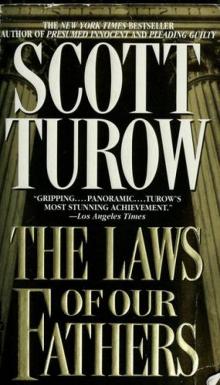 The Laws of Our Fathers
The Laws of Our Fathers Ordinary Heroes
Ordinary Heroes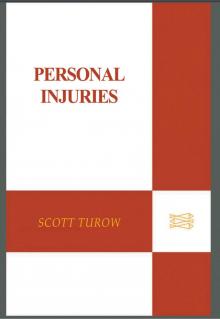 Personal Injuries
Personal Injuries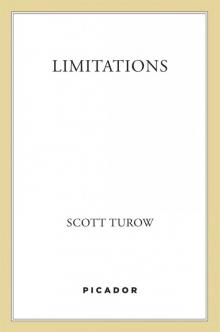 Limitations
Limitations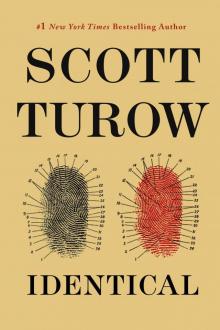 Identical
Identical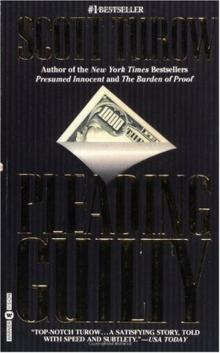 Pleading Guilty
Pleading Guilty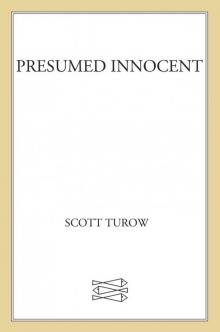 Presumed Innocent
Presumed Innocent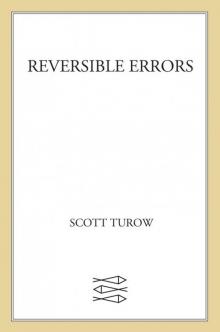 Reversible Errors
Reversible Errors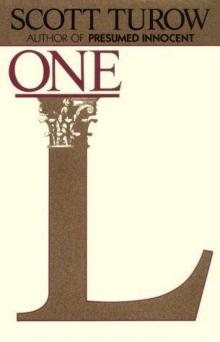 One L: The Turbulent True Story of a First Year at Harvard Law School
One L: The Turbulent True Story of a First Year at Harvard Law School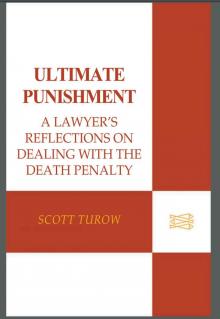 Ultimate Punishment
Ultimate Punishment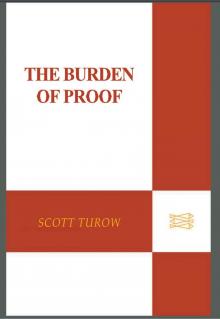 The Burden of Proof
The Burden of Proof Ordinary Heroes (2005)
Ordinary Heroes (2005)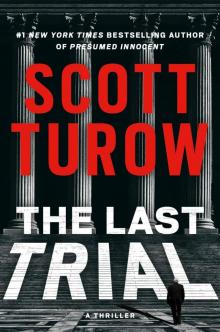 The Last Trial
The Last Trial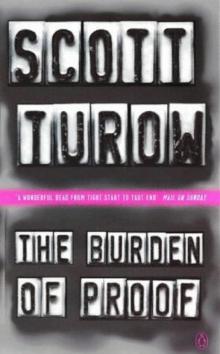 The Burden of Proof kc-2
The Burden of Proof kc-2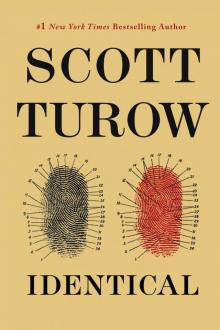 KC09 - Identical
KC09 - Identical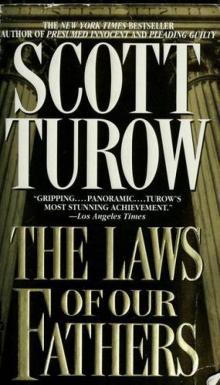 The Laws of our Fathers kc-4
The Laws of our Fathers kc-4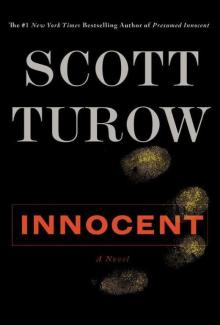 Innocent kc-8
Innocent kc-8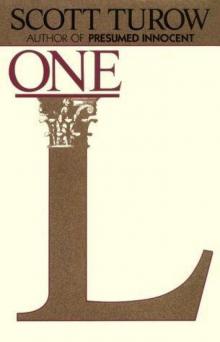 One L
One L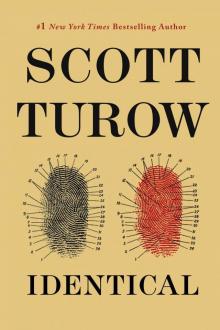 Identical kc-9
Identical kc-9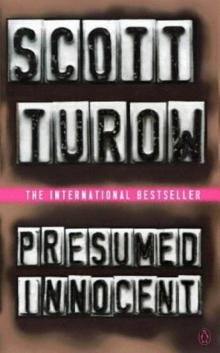 Presumed innocent kc-1
Presumed innocent kc-1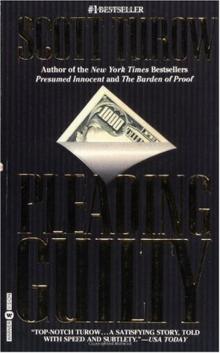 Pleading Guilty kc-3
Pleading Guilty kc-3 One L (1977)
One L (1977)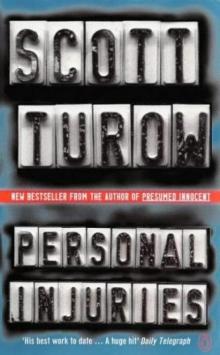 Personal injuries kc-5
Personal injuries kc-5